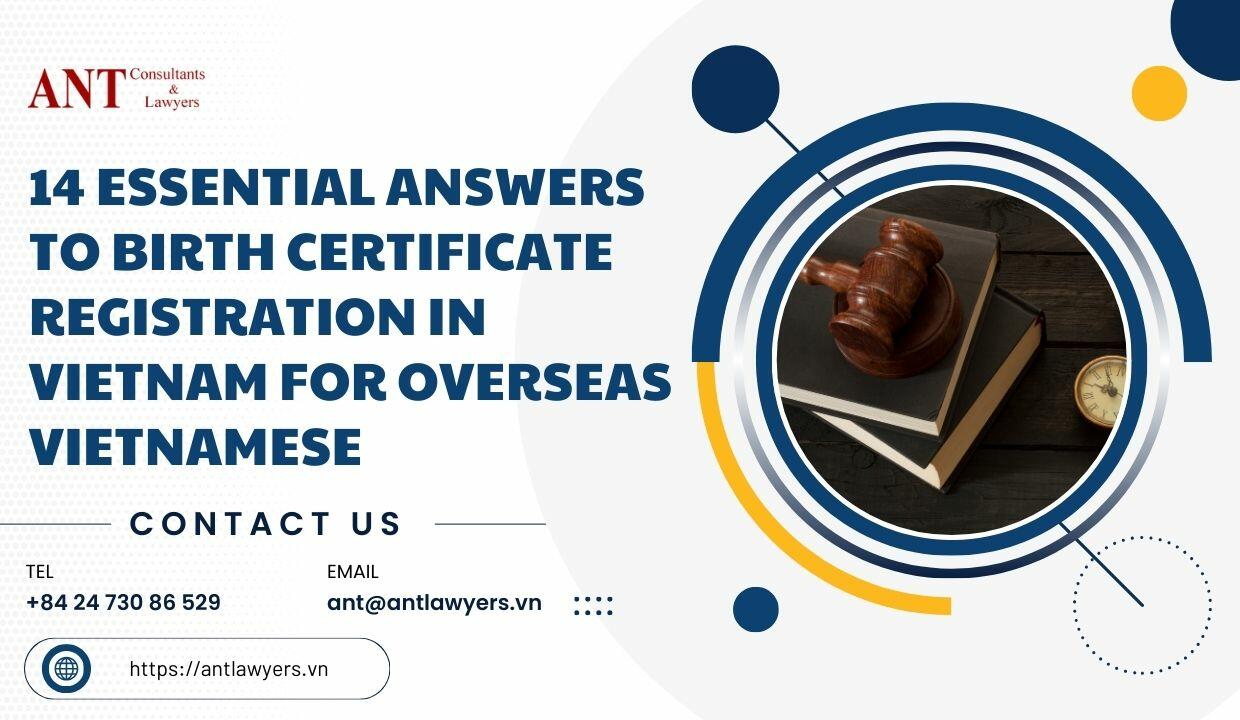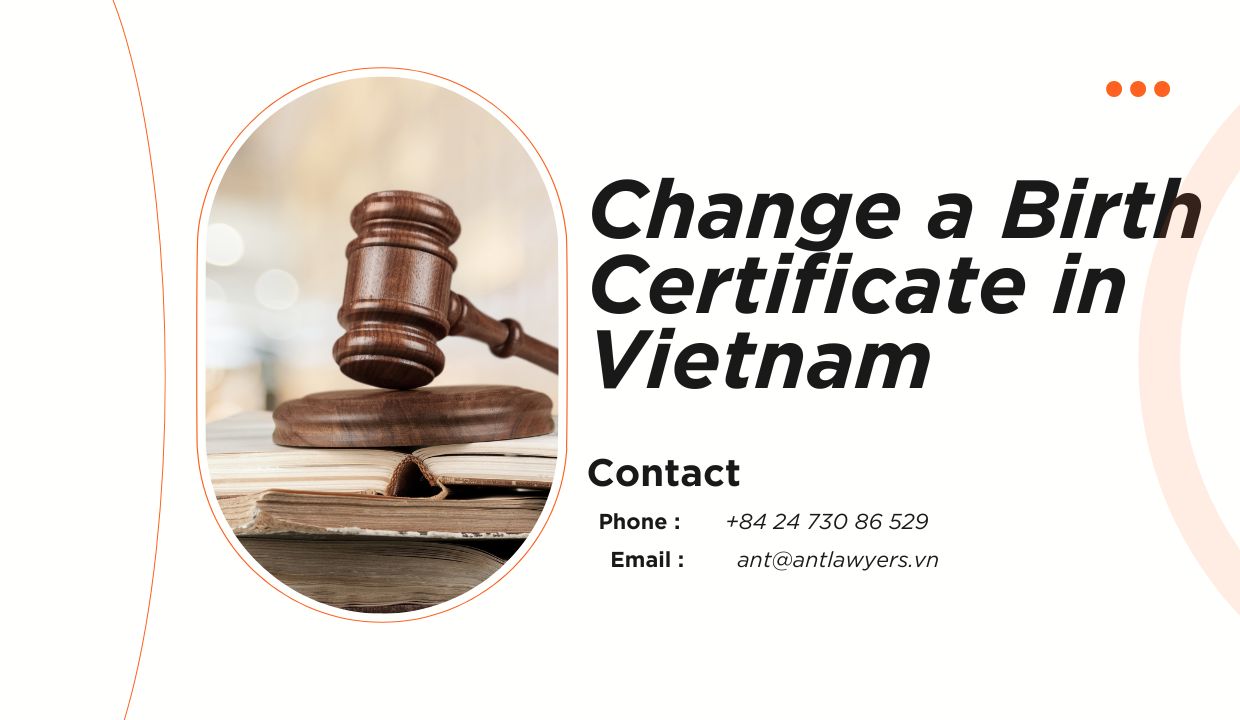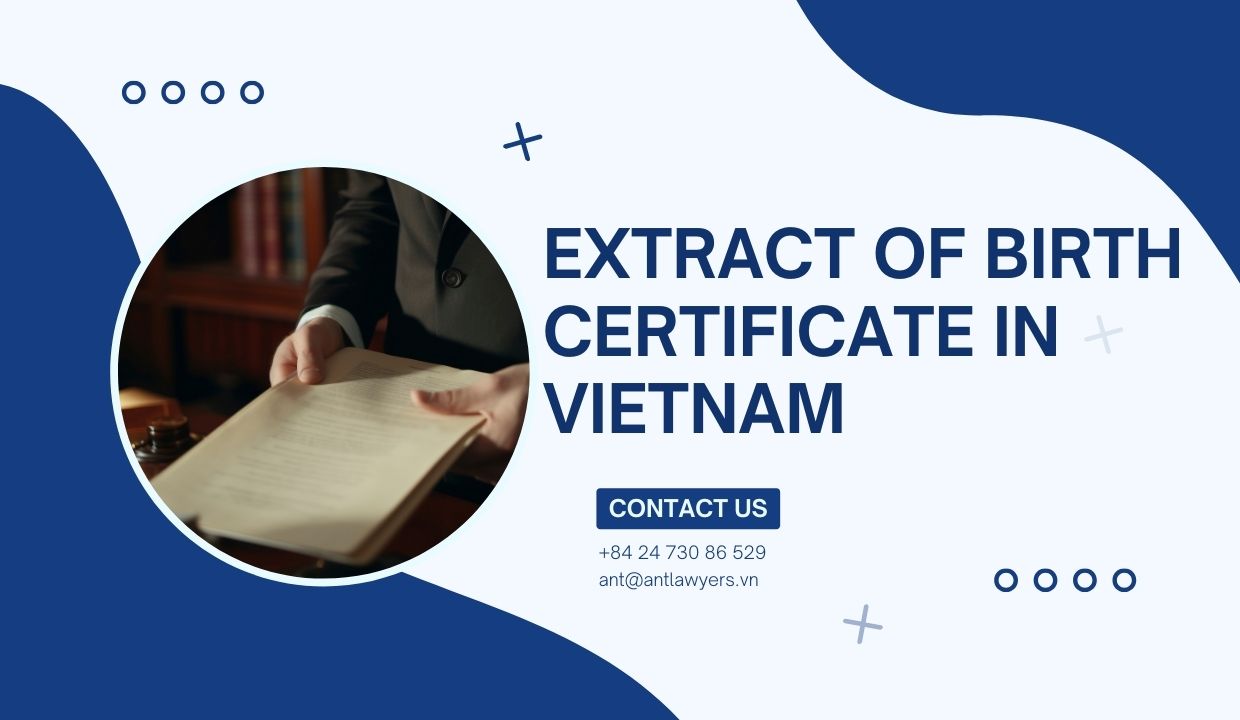14 Essential Answers to Birth Certificate Registration in Vietnam for Overseas Vietnamese


Birth_Certificate_registration_in_Vietnam
Imagine a moment when you are working on a life changing opportunity, perhaps securing citizenship for you or your children, inheriting family property, or applying for a immigration visa. Suddenly, you are asked for one document, which most people do not puzzle, but you do because of circumstances particular to you: a birth certificate. For many overseas Vietnamese, this crucial piece of paper remains elusive, lost in the tides of migration, or never issued in the first place.
Birth certificate registration in Vietnam isn’t just about bureaucracy; it’s about reclaiming your roots, solidifying your identity, and paving the way for legal and personal possibilities.
In here, we will tackle the 15 most critical questions about birth certificate registration in Vietnam, offering you clarity and actionable steps to resolve this pressing issue.
What Is Birth Certificate Registration in Vietnam, and Why Is It Crucial?
Birth certificate registration in Vietnam is the official process of documenting a person’s birth in Vietnam’s civil registry. It provides legal proof of your date of birth, place of birth, and parentage, forming the cornerstone of your Vietnamese identity.
For overseas Vietnamese, a birth certificate is not just a piece of paper—it’s your gateway to:
• Citizenship Documentation: Apply for Vietnamese passports or identity cards.
• Inheritance Rights: Claim family properties or estates.
• Family Ties: Register your children as Vietnamese nationals.
• Immigration Processes: Strengthen visa or naturalization applications abroad.
Without this document, navigating legal systems both in Vietnam and internationally can be fraught with challenges.
Who Needs Birth Certificate Registration in Vietnam?
You might need to consider birth certificate registration in Vietnam if you:
• Never Had a Birth Certificate: This is common for those born in rural areas or during turbulent historical periods when documentation wasn’t prioritized.
• Lost or Damaged Your Birth Certificate: Over time, papers may be misplaced or deteriorated.
• Need Proof of Birth for Legal Reasons: Situations like inheritance disputes, marriage registrations, or visa applications often require an official birth certificate.
How Can Overseas Vietnamese Obtain a Birth Certificate for the First Time?
If you were born in Vietnam but never registered, you can apply for late registration. Here’s what you need to know:
1. Eligibility: You must have been born in Vietnam and not previously registered.
2. Documents Required:
• Proof of birth (hospital record, midwife’s certificate, or witness statements).
• Family-related documents (e.g., household registration book, parents’ marriage certificate).
• Personal identification (Vietnamese ID, passport, or equivalent).
3. Process:
• Visit the Civil Status Registration Office in your birth locality.
• Complete a late registration form and submit evidence.
• Pay any associated fees and wait for approval.
What If You’ve Lost Your Birth Certificate?
Losing a birth certificate is a common issue for overseas Vietnamese. Fortunately, you can request a reissued copy.
Steps to Reissue a Birth Certificate:
1. Gather supporting documents such as:
• A copy of the original birth certificate (if available).
• Family records (household registration book, school records, etc.).
2. Submit an application for a birth certificate extract (Trích lục Giấy Khai Sinh) at the local Civil Status Registration Office where your birth was registered.
3. Provide identification to verify your claim.
4. Await processing and pay any applicable fees.
Can You Register or Reissue a Birth Certificate from Abroad?
Yes, overseas Vietnamese can handle birth certificate registration in Vietnam without traveling back. Here are your options:
Option 1: Through Vietnamese Embassies and Consulates
Option 2: Authorizing a Representative
• Grant power of attorney to a trusted relative or legal representative in Vietnam.
• Have the power of attorney notarized at a Vietnamese consulate.
• Your representative can then handle the process locally on your behalf.
What Challenges Might You Face in Birth Certificate Registration in Vietnam?
The process is not without its hurdles, but understanding them will help you prepare:
1. Lack of Documentation: Missing birth records can delay the process.
• Solution: Provide alternative evidence, such as school records or family statements.
2. Language Barriers: Communicating with Vietnamese authorities may be difficult.
• Solution: Hire a translator or bilingual legal advisor.
3. Processing Delays: Bureaucratic procedures can take time.
• Solution: Start early and follow up regularly.
What Are the Costs and Timeline for Birth Certificate Registration in Vietnam?
The costs vary depending on the locality and complexity of the case, but typical fees include:
• Administrative fees for document processing.
• Additional charges for notarization or translation if required.
Timelines can range from a few weeks to several months, especially for cases requiring verification of old records.
What Happens If No Records Are Found?
If authorities cannot locate your birth records, you can proceed with a late registration application. Be prepared to:
• Submit affidavits from witnesses to your birth.
• Provide alternative documentation such as old photos, letters, or community statements.
How Can You Use a Reissued Birth Certificate Internationally?
For use abroad, you may need to:
1. Translate the Birth Certificate: Into the language of the destination country.
2. Legalize the Document: Through the Vietnamese Ministry of Foreign Affairs and the foreign country’s consulate.
How Does Birth Certificate Registration Impact Your Family?
Registering your birth certificate has far-reaching benefits for your family:
• Children’s Citizenship: Use it to register your children as Vietnamese nationals.
• Inheritance Rights: Ensure your family can claim properties or assets in Vietnam.
• Legal Protections: Strengthen your family’s standing in legal matters involving Vietnam.
Why Is Now the Best Time to Act?
Every day you delay birth certificate registration in Vietnam could result in missed opportunities:
• Laws and procedures change, potentially making the process more complicated.
• Older relatives who can provide witness statements may no longer be available.
What Are the Legal Implications of Not Having a Birth Certificate?
Without a birth certificate, you may face:
• Barriers to Citizenship: Limited access to Vietnamese identity documents.
• Loss of Property Rights: Challenges in proving your entitlement to family assets.
• Restricted Opportunities: Difficulties in securing visas or registering your children.
Tips for a Smooth Birth Certificate Registration Process
1. Prepare Thoroughly: Gather all possible supporting documents.
2. Seek Legal Advice: Consult experts familiar with Vietnamese civil law.
3. Stay Organized: Keep digital copies of all submitted forms and receipts.
4. Follow Up: Regularly check on your application’s progress with the relevant authorities.
Looking Ahead
Birth certificate registration in Vietnam is more than a procedural task, it’s a step toward preserving your heritage, securing your rights, and opening doors to opportunities for you and your family.
Take the first step today. Whether you’re registering for the first time, reissuing a lost certificate, or navigating complex challenges, this guide equips you with the tools and knowledge to succeed. Remember, every journey toward reclaiming your identity starts with action.
About ANT Lawyers, a Law Firm in Vietnam
We help clients overcome cultural barriers and achieve their strategic and financial outcomes, while ensuring the best interest rate protection, risk mitigation and regulatory compliance. ANT lawyers has lawyers in Ho Chi Minh city, Hanoi, and Danang, and will help customers in doing business in Vietnam.
How ANT Lawyers Could Help?
Please click here to learn more about ANT Lawyers Civil Matters Practice or contact our lawyers in Vietnam for advice via email ant@antlawyers.vn or call our office at +84 28 730 86 529
Recent Posts
5 Essential Lessons from Risk Management in Digital Assets in Vietnam: Protecting Trust in a Digital World
Trust Is the Real Currency Money can be lost. Tokens can vanish. Platforms can crash.…
5 Powerful Reasons Why Vietnam Digital Asset Sandbox Is a Bold and Hopeful Move for Innovation
Change is fast. Rules are slow. But innovation can’t wait. As digital assets grow, so…
4 Critical Steps to Effectively Terminate The Employment Contracts with Confidence and Compassion
To terminate the employment contracts can be a complex and often sensitive process, especially when…
8 Insights from a Due Diligence Attorneys in Vietnam for Successful M&A Deals
Navigating the complex landscape of mergers and acquisitions (M&A) in Vietnam can be a daunting…
What 7 Crucial Truths About Arbitration in Vietnam Every Foreign Company Must Know Today?
Let's face the fact, as business owners or directors, would you normally look at dispute…
7 Crucial Legal Challenges Fintech Law Firms in Vietnam Can Help You Overcome for Business Success
Vietnam’s fintech sector is experiencing rapid growth, catching up with the trend of digital financial…




